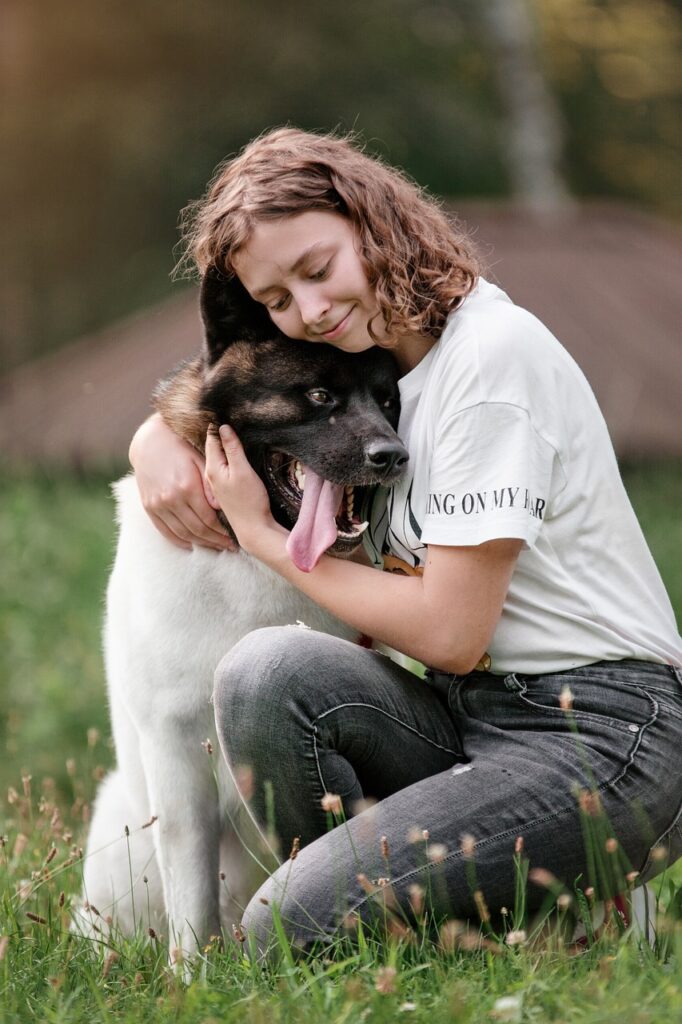As our pets age, their needs evolve, just like ours. Senior pets bring a unique charm and wisdom into our lives, but they also require a little extra care to ensure their golden years are happy and healthy. Whether you’ve been with your furry friend since they were a playful pup or kitten, or you’ve recently adopted a senior pet, this guide will walk you through everything you need to know about caring for your senior companion.
Understanding When Your Pet Becomes a Senior
The age at which a pet is considered senior varies by species and breed. Generally:
- Dogs: Smaller breeds are considered senior around 10-12 years, while larger breeds may enter their senior years as early as 6-8 years.
- Cats: Most cats are considered senior by the age of 10.
- Other pets: For rabbits, birds, or exotic pets, senior status depends on their specific lifespan.
Recognizing the signs of aging early can help you address potential health issues before they become serious.
Common Signs of Aging in Pets
As pets grow older, you may notice changes in their behavior, appearance, and overall health. Some common signs include:
- Reduced energy levels: Your pet may prefer lounging to playing.
- Weight changes: Weight gain or loss can indicate health issues.
- Greying fur: A natural and harmless part of aging.
- Stiffness or limping: Could be a sign of arthritis or joint issues.
- Changes in appetite: Eating more or less than usual warrants attention.
- Vision and hearing loss: Watch for signs like bumping into furniture or not responding to calls.
- Increased thirst or urination: Could indicate diabetes or kidney problems.
Prioritizing Regular Vet Visits
Routine vet visits are the cornerstone of senior pet care. As your pet ages, they should see the vet at least twice a year. These check-ups allow early detection of potential health issues and give you a chance to discuss any changes in behavior or health.
What to Expect During Senior Pet Check-Ups
- Bloodwork: Helps detect underlying conditions like kidney disease or diabetes.
- Dental exams: Prevents painful oral health problems.
- Weight monitoring: Keeps obesity or unexpected weight loss in check.
- Mobility assessment: Identifies joint or muscle issues early.
Nutrition Tailored for Seniors
Diet plays a crucial role in your senior pet’s health. Their caloric needs and nutrient requirements change as they age. Here’s how to keep their diet balanced:
- Choose senior-specific food: These formulas are designed to meet the needs of aging pets.
- Monitor portion sizes: Overfeeding can lead to obesity, while underfeeding can result in malnutrition.
- Focus on joint health: Look for foods rich in omega-3 fatty acids and glucosamine.
- Encourage hydration: Older pets are more prone to dehydration, so ensure they have constant access to fresh water.
Supporting Mobility and Joint Health
Arthritis and joint pain are common in senior pets, but there are ways to support their mobility:
- Provide soft bedding: Orthopedic beds can ease joint pressure.
- Install ramps or steps: Help them navigate furniture or stairs.
- Moderate exercise: Gentle walks or light play keep muscles active without overexerting.
- Supplements: Consult your vet about glucosamine, chondroitin, or other joint supplements.
Dental Care for Senior Pets
Dental health often takes a backseat but is critical for overall well-being. Neglecting oral care can lead to pain, infections, and even organ damage. Here’s how to maintain it:
- Brush their teeth: Use pet-safe toothpaste and a soft brush.
- Dental treats: These can help reduce plaque and tartar.
- Regular cleanings: Professional dental cleanings may be necessary.
Keeping Your Senior Pet Mentally Stimulated
Cognitive decline can occur as pets age, leading to conditions like Canine Cognitive Dysfunction (CCD) or feline senility. Keep their minds sharp with:
- Puzzle toys: Engages their problem-solving skills.
- Training sessions: Teach new tricks or reinforce old ones.
- Quality time: Regular interaction and affection are key.

Creating a Comfortable Home Environment
Make adjustments to your home to cater to your senior pet’s changing needs:
- Accessible sleeping areas: Ensure their bed is in a quiet, easy-to-reach spot.
- Non-slip rugs: Prevent slipping on hard floors.
- Easy access to food and water: Place bowls at a comfortable height.
- Temperature control: Older pets are more sensitive to extreme temperatures, so keep their space cosy.
Addressing Health Issues
It’s common for senior pets to develop chronic conditions. Early detection and management are key to ensuring quality of life:
Arthritis and Joint Pain
- Signs: Limping, stiffness, reluctance to move.
- Management: Pain medications, joint supplements, and weight management.
Kidney Disease
- Signs: Increased thirst, frequent urination, weight loss.
- Management: Special diets and regular vet monitoring.
Diabetes
- Signs: Excessive thirst, increased appetite, weight loss.
- Management: Insulin injections and dietary changes.
Vision and Hearing Loss
- Signs: Bumping into objects, unresponsiveness.
- Management: Keep their environment consistent to avoid disorientation.
Recognizing the End-of-Life Stage
Caring for a senior pet also means being prepared for the tough decisions that may come. If your pet’s quality of life declines significantly, discuss options like palliative care or euthanasia with your vet. Signs that it might be time include:
- Chronic pain that cannot be managed.
- Inability to eat, drink, or move comfortably.
- Loss of interest in favourite activities.
Making these decisions is never easy, but it’s an act of love to prevent unnecessary suffering.

Real-Life Example: Max’s Golden Years
Take the story of Max, a 12-year-old Labrador Retriever. Max began showing signs of arthritis and weight gain, but his owner, Sarah, adapted his care to meet his needs. She switched him to a senior-friendly diet, added joint supplements, and ensured regular vet check-ups. With these changes, Max’s mobility improved, and he’s enjoying his golden years with plenty of love and comfort.
Final Thoughts
Caring for a senior pet is a rewarding journey filled with love and compassion. By understanding their changing needs and making thoughtful adjustments, you can ensure your pet enjoys a happy, healthy life in their later years. Remember, they’ve been by your side through thick and thin – now it’s your turn to be there for them.
Unlock Your Dog’s Full Potential with UltraK9 Pro – Boost Energy, Health, and Vitality Today!

